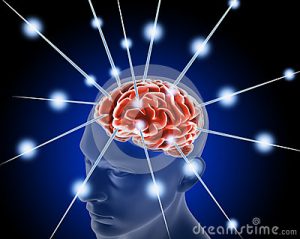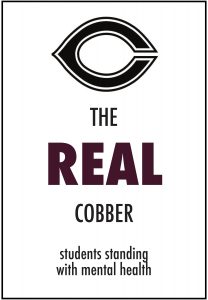The Neurochemistry course has allowed me to become more aware of the many impacts of the brain on the rest of the body. Neurochemistry at Concordia gave me an opportunity to explore various topics having to do with the connections between the brain and many different diagnoses and diseases. I have loved being able to relate many of the courses I have taken at Concordia come together in this class, including Anatomy, Psychology, other Neuroscience courses, Biology, and Chemistry and use them to understand complex diseases. I have also truly enjoyed working with my peers to study the pathways of the brain in a directed manner and as Dr. Mach would say “solve all of the world’s problems”. Having a Capstone course that requires me to use all of the knowledge I have gained from Concordia was an amazing way to end my college career, as I am not only ending my semester, but also my college career.

After taking many neuroscience courses in the past, all of which were mostly just lab and lecture-based, I was interested to see how Neurochemistry was going to work as a capstone course prior to taking the class. However, after taking the course, I realized how much more it focused on the big picture, creating an environment for understanding and discussion, and forcing the class to see everything as being interconnected. Each week brought a new topic and allowed me to learn more and more about diseases I thought I had been knowledgeable about previously. I felt myself growing more in the Neuroscience field and applying what I have learned in all of my classes at Concordia to each specific disease.
Each week, we had a rotating schedule which consisted of reading and discussing and article, researching and sharing about our questions from the article, and a final discussion about our opinions on the disease or diagnosis of study. This allowed us to look at each topic from a variety of different ways and fully understand the impact and relationships going on for each disease. I really enjoyed this aspect of Neurochemistry as it helped me to learn about the disease from many different perspectives and see all sides of every argument. In addition to the articles, we had two exams to test our abilities on how to best analyze and understand scientific articles, which was very beneficial and challenged me to think more methodically under stress.
The final most important part of the course was the Community Action Project, where we were able to combine with Social Work students and focus on one topic that is either very popular or controversial in Neurochemistry. The topics chosen by our classes were Alzheimer’s, Autism, Anxiety/PTSD, and Mental Health. The CAP group that I was a part of focused on mental health and this was one of the most impactful experiences of my Neurochemistry experience. Being able to work closely with students from many different majors, minors, and backgrounds to find a way to implement a way to target the issue of mental health and lack of awareness into the college community. I loved being given the freedom to collaborate and decide a final project that our group thought was best in order to address this issue for college students at Concordia. Being able to see the ways mental health impacts college students and faculty through surveys and interviews really opened my eyes up more the issue and I learned so much from all of our research before and during Mental Health Awareness week.

Overall, Neurochemistry taught me an immense amount about how to address issues, how to collaborate with students, faculty, and community members, and how to research common issues and find potential solutions for them. I truly enjoyed this course and especially enjoyed the other people in it. Concordia has five goals that they use to focus their education on, all of which I found to be applicable to my experience in the Neurochemistry capstone course. The first is to instill a love in learning. As I have mentioned up extensively up to this point in my blog, this course truly made me more interested in a multitude of topics, to the point where I would do extra research to find out the answers to my questions and to just continue learning MORE. The second goal is to develop foundational skills and transferable intellectual capacities. This course helped me to improve many of the skills I already had, as well as to develop new skills that will help me to succeed in the future. Some of these skills include communication, responsibility, intelligence, understanding, patience, and being more hard-working. All of these skills will apply to my future career as a Physical Therapist and will help me to continuously improve upon who I am as a student and person. The third goal is to develop an understanding of various perspectives and their connections. This goal was displayed in many different ways, but especially in all of the discussions that were included in Neurochemistry, whether during our weekly discussions about articles, our CAP group projects, or our various research on many different topics. Finding and understanding different perspectives about all of these topics were key in making me enjoy the class as much as I did. I have really grown to appreciate learning from all points of view, especially those different from my own, as it allows me to fully understand each topic from all different sides and see it as a bigger picture. The fourth goal is to cultivate a greater self-understanding. Neurochemistry helped to put me personally in each situation, disease, and diagnosis, and look at them from the view of the physician, caretaker, victim, patient, etc. This has created a much more well-rounded perspective not only on things related to the brain and body, but just all things in general. I have found myself stopping to think about things in many more ways than I had before taking the course and feel as though I have become much more able to see where each person is coming from. Finally, the fifth goal is to encourage responsible participation in the world. I feel that this goal really came in to play with our CAP group participation in mental health week. We combined community resources, campus resources, opinions from students and faculty, and the research of the neuroscience behind mental health disorders to create a much wider understanding of mental health all over the Concordia campus.
Neurochemistry changed my perspective on many issues and allowed me to become much more knowledgeable about not just neuroscience, but many other life skills as well. I am excited to use what I have learned in this course to transfer to future experiences. I know that what Dr. Mach has taught us will help extremely in the future and will be able to continue to be applied to my future education and career. Working with the other students in my class and Dr. Mach was the best way to end my time here at Concordia, and I feel more like a family then just another class. I will forever remember my time in Neurochemistry, the skills I learned, and the people I spent it with.
